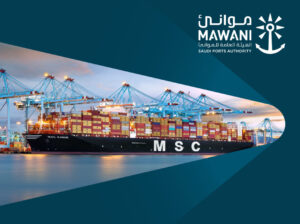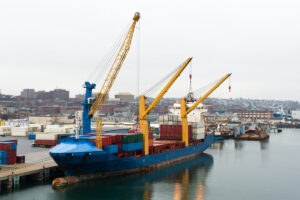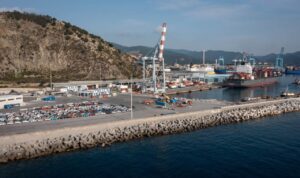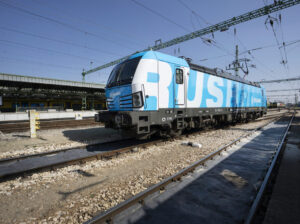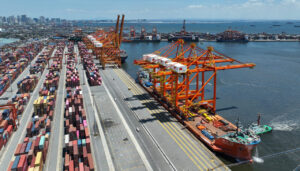The banking group HSBC has used blockchain to complete the first live trade finance transaction for a letter of credit with US food and agricultural conglomerate Cargill.
London-based HSBC sent the documents for a bulk shipment of soya beans from Argentina to Malaysia to Dutch bank ING through the 'Corda' blockchain platform developed by technology consortium R3.
In an announcement, HSBC stated that the system was “commercially and operationally viable” for the digital facilitation of trade.
According to HSBC, blockchain was able to reduce Cargill’s document exchange time to 24 hours from what would normally be a five to 10-day process.
Trade experts believe blockchain may be shipping’s answer to how it can tackle time-intensive paper-based processes.
More than US$ 2 trillion of trade currently depends on the physical exchange of letters of credit.
HSBC & ING Bank have used Corda blockchain technology to finance a shipment of soya beans from Argentina to Malaysia for food & agriculture conglomerate Cargill. Revolutionising the future of Documentary Trade. #TransformingTrade pic.twitter.com/MOBA1gQYIl
— HSBC (@HSBC) May 13, 2018
Read the blockchain technical paper by Wolfgang Lehmacher, World Economic Forum, to understand why blockchain is important to the port, harbour, and terminal industries
However, before it can progress further with integrating blockchain into international trade, HSBC said it needs more banks, ports, shipping companies and customs operations to adopt similar collaborative technology platforms.
A public post made by Vivek Ramachandran, Global Head of Trade Products at HSBC, predicted that blockchain technology could operate on a “closed network” basis – with transactions only visible to registered participants – within three to five years.
Ramachandran also said that blockchain could digitize bills of lading – the shipping documentation that details where goods and commodities are going and what cargo is aboard a vessel.
In his post, Ramachandran stated: “From ‘letters of credit’ to ‘bills of lading’, merchandise trade today is heavily reliant on paper documents.
“In our digital, connected world there is a growing need to modernize trade’s many paper-based processes.
“Digitisation would reduce bureaucracy, improve security, minimize errors and make it easier to amend documents, ultimately saving time and money.”
R3 and the group of 12 banks supporting the Corda application are seeking to expand the network on an open basis to drive adoption across the industry.
Ivar Wiersma, Managing Director, Innovation Wholesale Banking, ING, said: “It’s exciting to see this transaction has been completed successfully with clear client benefits in speed and ease in execution.
“On top of that, it shows the power of collaboration. Collaboration with other ecosystems’ stakeholders like regulators, ports, customs and logistics providers such as large shipping carriers. And in particular, collaboration with other banks, even our peers.”
Commenting on the Cargill transaction, Ramachandran said: “What this means for businesses is that trade finance transactions have been made simpler, faster, more transparent and more secure.
“The need for paper reconciliation is removed because all parties are linked on the platform and updates are instantaneous. The quick turnaround could mean unlocking liquidity for businesses.”

